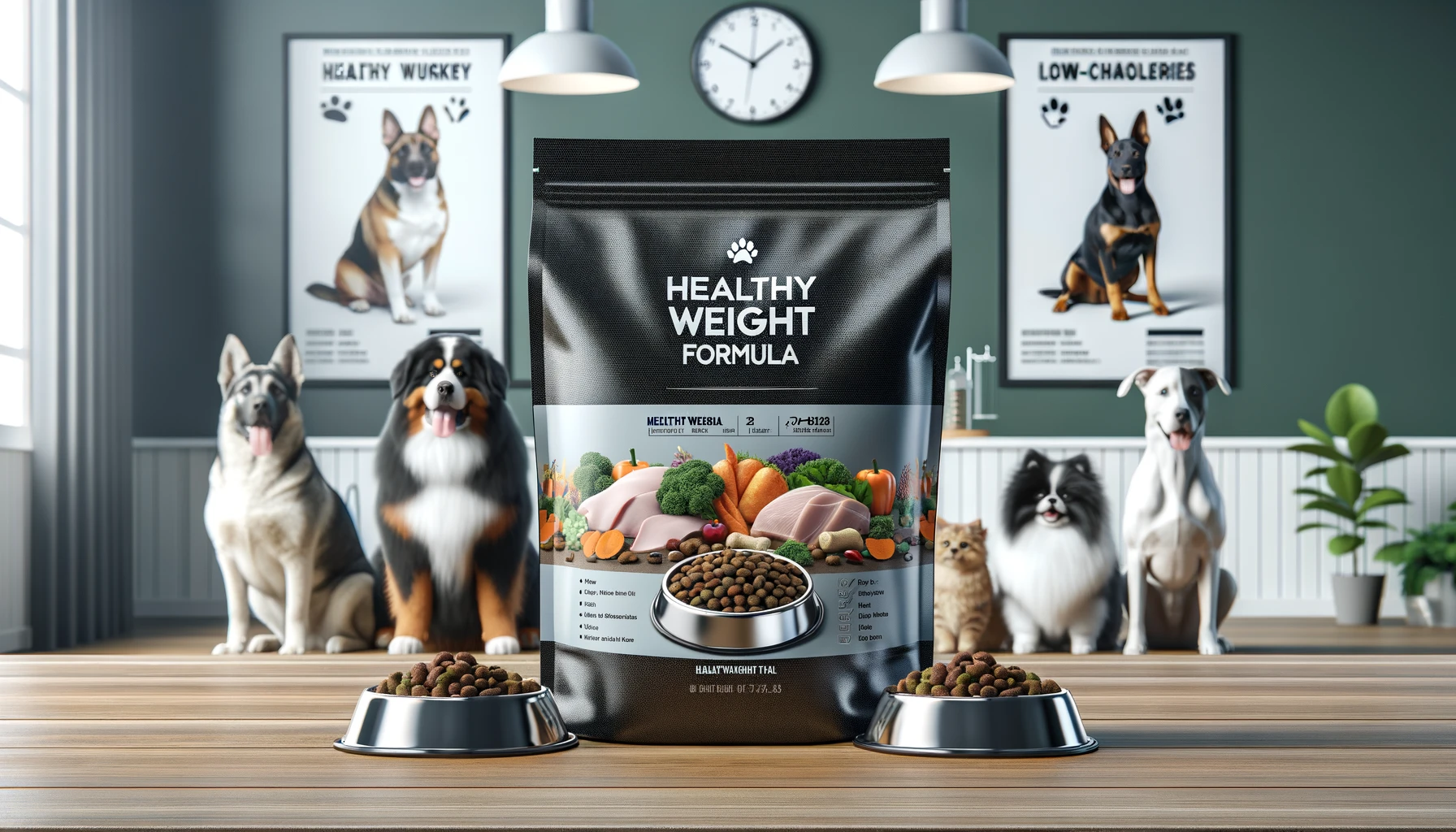Obesity in dogs is a growing concern, with a significant number of pets affected globally. This condition not only compromises the quality of life but can also lead to serious health issues. A crucial element in combating canine obesity is choosing the right dog food focused on weight management.
Understanding Canine Obesity
Canine obesity often results from a combination of overfeeding and lack of exercise. It can lead to various health problems, including diabetes, heart disease, and joint issues. Understanding the root causes is the first step in effectively managing a dog’s weight.
Nutritional Fundamentals of Weight Loss Dog Foods
Weight loss dog foods are formulated to provide all the necessary nutrients while reducing calorie intake. These diets typically feature:
- Reduced Caloric Content: Lower calorie counts to help in gradual weight loss.
- Balanced Nutrients: Despite lower calories, these foods must be nutritionally complete.
- High-Protein, Low-Fat Formulas: To maintain lean muscle mass during weight loss.
Top Dog Food Brands for Weight Loss
- Hill’s Prescription Diet Metabolic + Mobility Canine
- Pros: Clinically proven to support mobility and 28% body fat loss in dogs in two months.
- Cons: Prescription required, higher cost.
- Price: Around $90 for a 24-lb bag.
- Purchase Options: Available through veterinarians and some online retailers.
- Royal Canin Veterinary Diet Canine Satiety Support Weight Management
- Pros: High in fiber, helping dogs feel full and reducing begging behavior.
- Cons: Prescription needed, some dogs may not like the taste.
- Price: Approximately $80 for a 26.4-lb bag.
- Purchase Options: Sold at veterinary clinics and specialized pet stores.
- Purina Pro Plan Veterinary Diets OM Overweight Management Formula
- Pros: Effective for weight loss and maintenance, high protein content.
- Cons: Requires veterinary authorization.
- Price: About $70 for a 32-lb bag.
- Purchase Options: Available through veterinarians and select retailers.
- Blue Buffalo Life Protection Formula Healthy Weight Adult Chicken & Brown Rice Recipe
- Pros: No prescription needed, made with real meat and whole grains.
- Cons: Lower protein content compared to prescription diets.
- Price: Around $50 for a 30-lb bag.
- Purchase Options: Widely available in stores and online.
- Wellness CORE Natural Grain Free Reduced Fat Dog Food
- Pros: Grain-free, higher protein content, and lower fat.
- Cons: Some dogs may be sensitive to grain-free diets.
- Price: Approximately $68 for a 26-lb bag.
- Purchase Options: Available at pet stores and online.
Special Diet Considerations
When choosing a weight management diet, consider your dog’s age, breed, and any food allergies or sensitivities. Tailoring the diet to these specific needs can enhance its effectiveness.
Feeding Strategies for Weight Loss
Effective weight management involves more than just changing the food. Portion control is crucial, as is the reduction of extra treats and snacks. Feeding frequency can also play a role, with some dogs benefiting from smaller, more frequent meals.
Exercise and Weight Loss
A holistic approach to weight loss in dogs includes regular exercise. Integrating daily physical activity, like walks or play sessions, is vital in conjunction with dietary changes.
FAQs About Dog Food for Weight Loss
- How do I know if my dog needs to lose weight?
- Look for signs like decreased energy, difficulty in walking, and visible fat deposits. A vet can provide a definitive assessment.
- Can diet alone help my dog lose weight?
- While diet is crucial, combining dietary changes with exercise is the most effective approach.
- How quickly should my dog lose weight?
- Weight loss should be gradual, typically aiming for 1-2% of body weight per week, but consult a vet for a tailored plan.
- Are grain-free diets better for weight loss?
- Not necessarily. The key is reduced calories and balanced nutrition, not necessarily grain-free.
- How can I prevent my dog from feeling hungry on a lower-calorie diet?
- High-fiber diets can help dogs feel fuller. Also, feeding smaller meals more frequently can help.
Conclusion
Managing your dog’s weight is a crucial part of their overall health care. Selecting the right weight management food, in combination with exercise and regular veterinary check-ups, can lead to a happier, healthier life for your dog.

Jane Doe, a veterinarian with over 10 years of experience, combines her deep knowledge of animal health with a passion for pet welfare at PetsPonder.com. With a DVM degree and a commitment to the latest in veterinary science, Jane Doe offers reliable, compassionate advice to help pet owners make informed decisions for their furry companions.

Leave a Reply